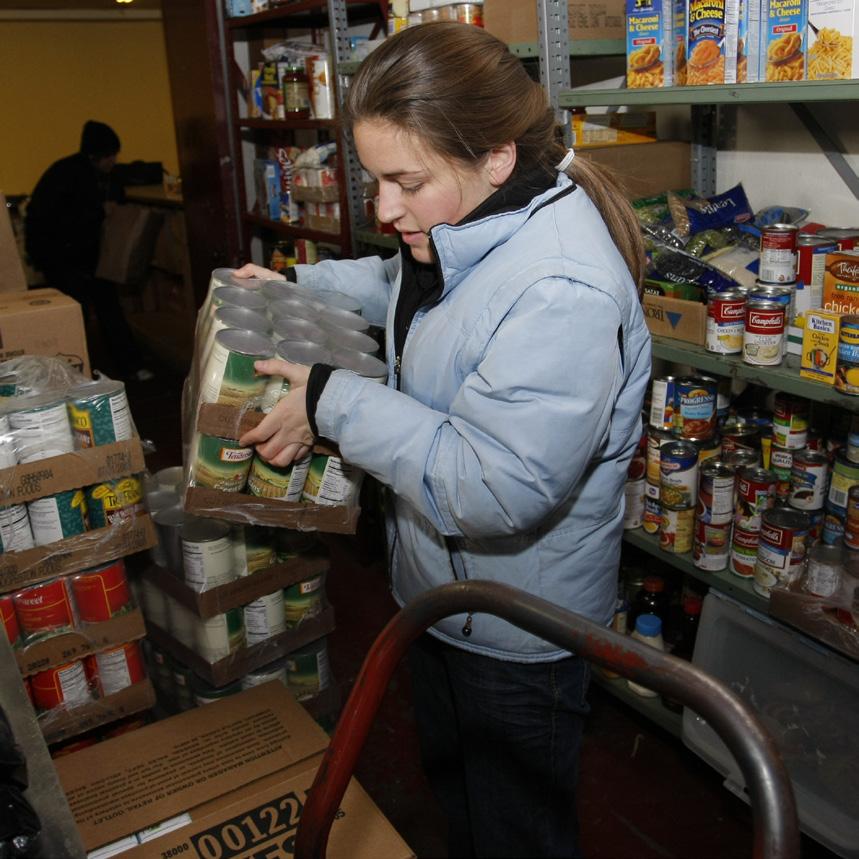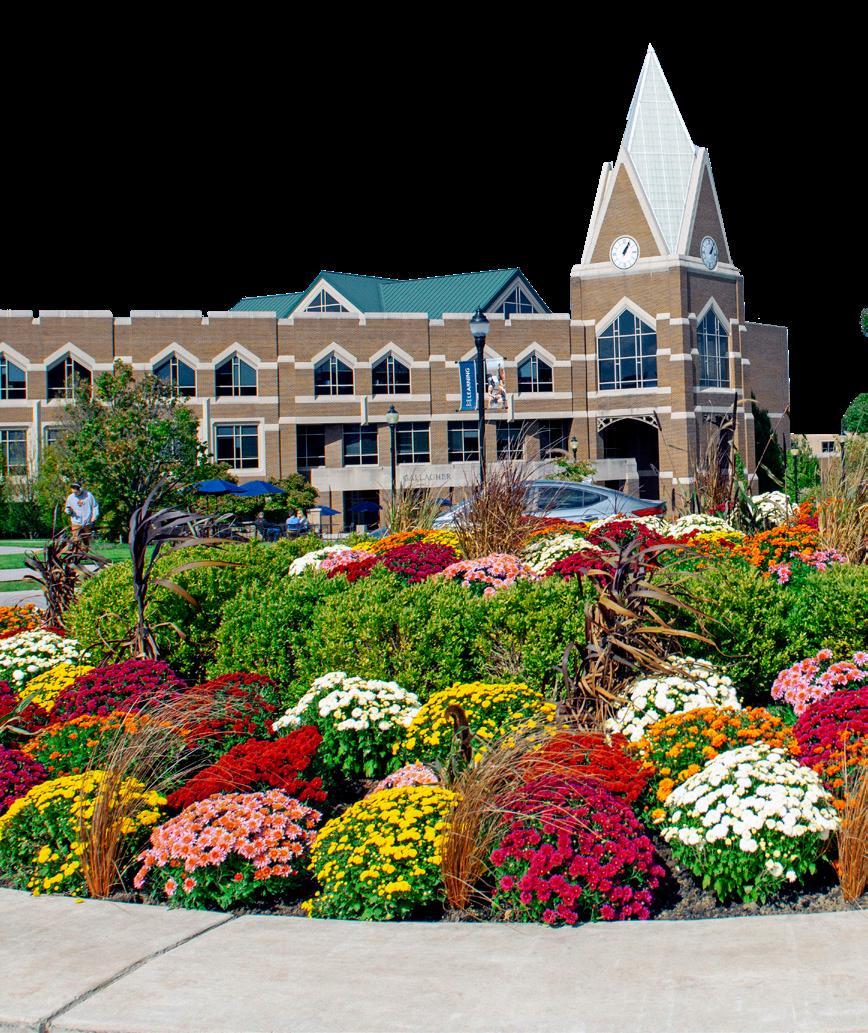Cura Terrae at Xavier University
Radical Care for Our Common Home
A Laudato Si’ University committed to Environmental Sustainability


Radical Care for Our Common Home
A Laudato Si’ University committed to Environmental Sustainability

At Xavier, environmental sustainability and integral ecology are central to who we are as a Jesuit Catholic university. Pope Francis’ encyclical Laudato Si’ and the Society of Jesus’ Universal Apostolic Preferences call us to deepen our commitment to caring for our common home.
In 2021, I pledged Xavier University as a Laudato Si’ University to advance the seven goals of Pope Francis’ Laudato Si’ Action Platform. Our undertakings are university-wide, with coordination centered within our Division of Mission and Ministry. Effective partnerships with organizations, faith communities, municipalities, and universities in the tri-
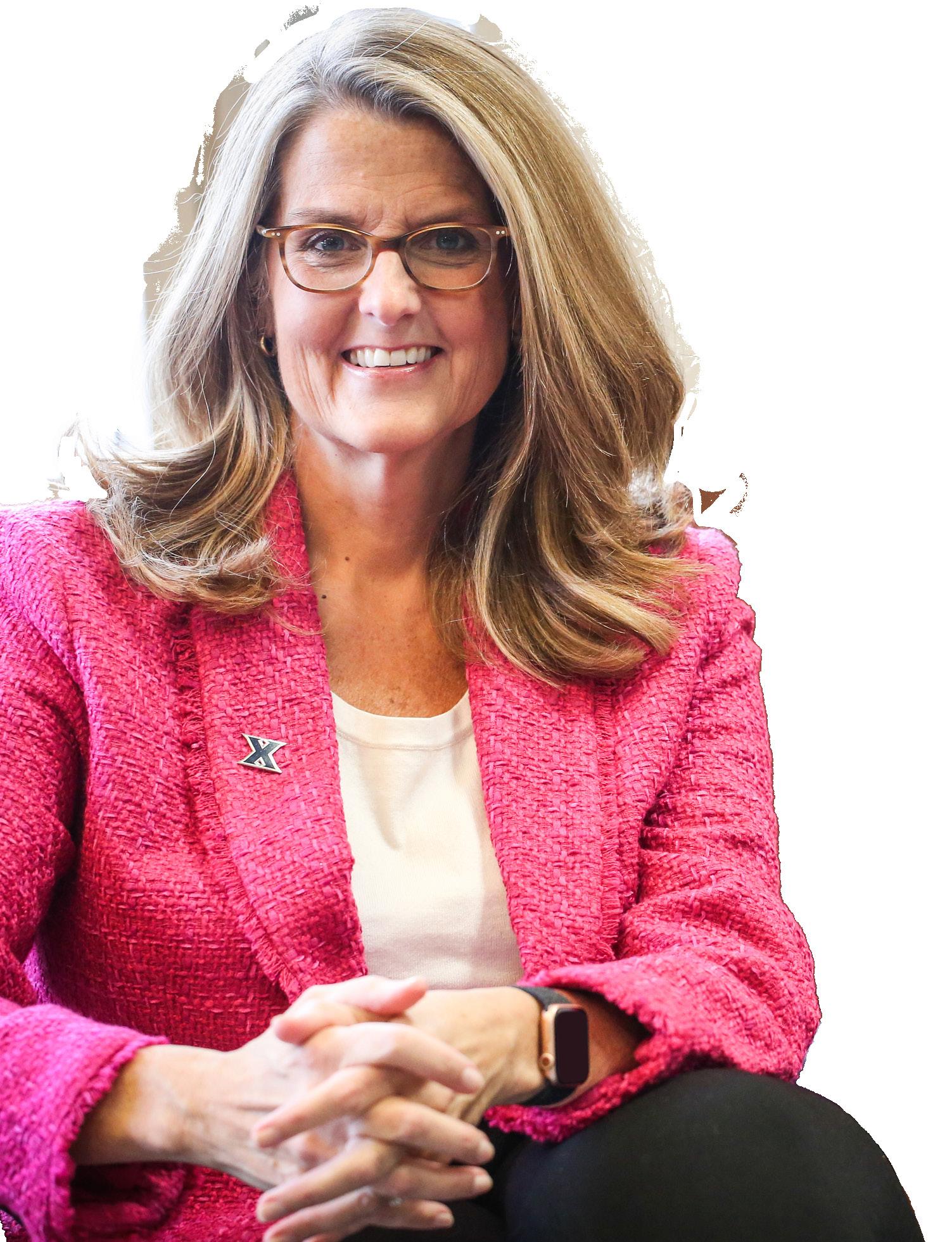
I am pleased to share this material that outlines Xavier University’s environmental initiatives and , furthering our culture of
Catholic social teachings are ideals and values that have been disseminated through papal and other Catholic Church documents over time; themes include stewardship of creation, seeking the common good, enhancing the life and dignity of the human person, protecting human rights, and pursuing peace and justice.
Cura terrae is Latin for care for the earth. It complements other important ‘caring’ qualities for educational excellence in the Jesuit Catholic tradition: cura apostolica (the institution), cura personalis (the whole unique person), cura propria (oneself), cura studiorum (the plan of studies).
Ecology is the branch of biological sciences that studies ecosystems, specifically the distributions, abundance, and relationships of organisms, including humans, and their interactions with the environment. Ecology comes from a Greek word meaning home.
Environmental sustainability involves actions to protect the environment for the welfare of future generations.
Environmental justice recognizes the connections between social injustice and environmental problems.
Integral Ecology reflects Pope Francis’ perspective on sustainability, outlined in Laudato Si’, as an integrated, holistic, human approach. Today’s ecological crisis is caused by a multitude of complex and interrelated social, political, economic and environmental problems. Integral ecology presumes that a comprehensive vision, focused on the common good, is necessary for improvement of the global environmental crisis. While daunting, Pope Francis, notes that “an integral ecology is also made up of simple daily gestures which break with the logic of violence, exploitation, and selfishness.
Laudato Si’ is Pope Francis’ call to “every person living on this planet” to work for global environmental justice. The title of his Papal encyclical, signed on May 24, 2015, translates from Italian to “Praise be to You,” which is phrasing from the Canticle of the Creatures written by St. Francis of Assisi.
The Universal Apostolic Preferences are four interrelated values announced by Jesuit Superior General Arturo Sosa, S.J., to guide the work of all members of the Ignatian global family for the decade of 2019-2029. They are as follows:
+ To show the way to God through the Spiritual Exercises and discernment
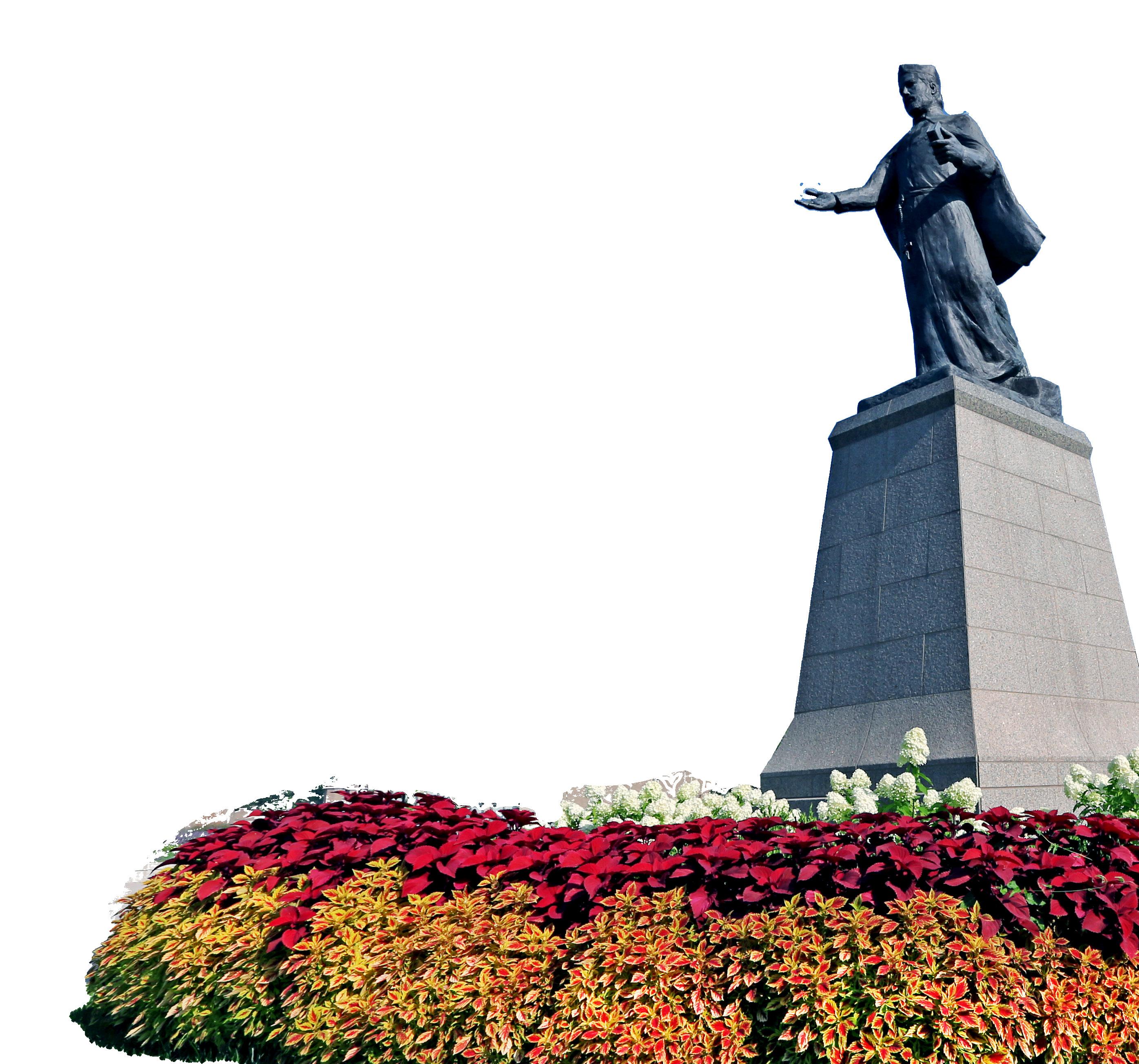
+ To walk with the poor, the outcasts of the world, those whose dignity has been violated, in a mission of reconciliation and justice
+ To accompany young people in the creation of a hope-filled future
+ To collaborate in the care of our Common Home
Wishcycling is when you place something you hope is acceptable in a recycling bin, but it is not (for example, greasy pizza boxes or plastic grocery sacks). While done with good intentions, “wishcycling” should be avoided because it can lead to contamination of recyclable materials which then end up in the landfill.
Xavier was ranked in the prestigious Times Higher Education (THE) Impact Rankings in 2024 along with 2,152 universities across 125 countries. THE Rankings are the first and only global performance tables that assess universities (regarding teaching, research, stewardship, and outreach) across the United Nations’ Sustainable Development Goals (SDGs). Xavier was one of 51 USA institutions that submitted its entry in the SDG 17-Parternership for the Goals category and was the only Jesuit university.
Since 2021, the Arbor Day Foundation has recognized Xavier as a Tree Campus due to our effective forest management and engagement in conservation efforts. Continuing Xavier’s work in conservation, research, community engagement, public education, and management of its campus tree, the University is applying to be recognized as an arboretum, led by Karen McCabe, Xavier’s Horticultural Specialist.
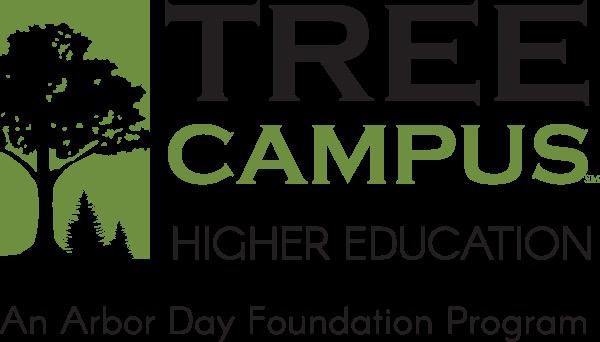
Brian Yeoman Sustainable Procurement Award
Cathy Baker, Xavier’s Assistant Manager in the Central Procurement Department, has been awarded the Brian Yeoman Sustainable Procurement Award through the National Association of Educational Procurement for creating the XU Office Swap. This program reduces waste sent to landfills by collecting and redistributing office supplies instead of purchasing new supplies.
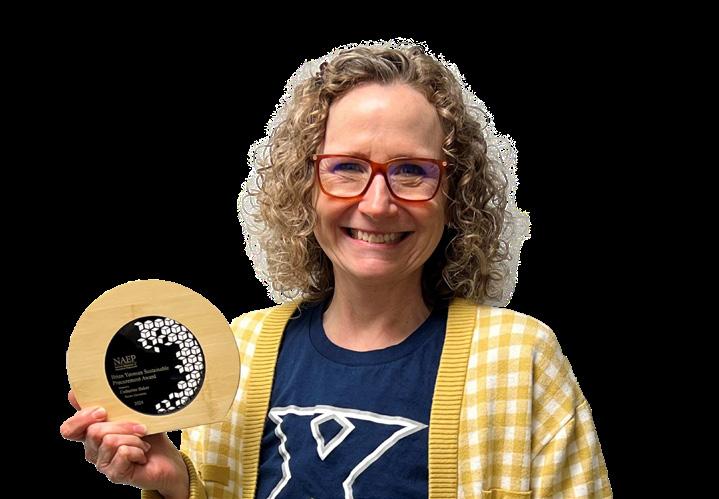
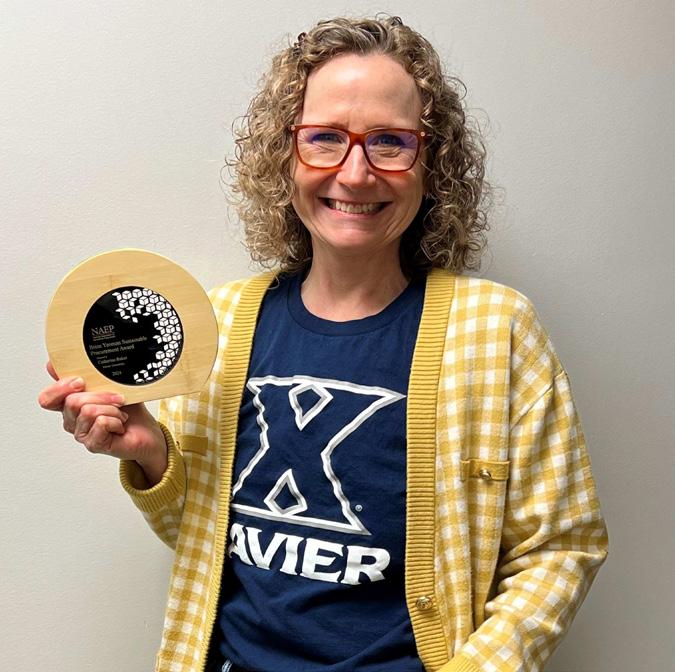
In 2023, the Archdiocese of Cincinnati recognized Xavier University as a “Laudato Si’ Community” for effectively living out Pope Francis’ Laudato Si’ message of caring for God’s creation.

In 2022, Xavier formed the President’s Laudato Si’ Steering Committee which includes broad representation from the campus community and working groups involving more than 40 additional students, faculty, and staff. Xavier’s Laudato Si’ Action Plan focuses the work of Xavier’s environmental sustainability on the themes of the Pope’s encyclical:
+ Response to the cry of the earth
+ Ecological education
+ Response to the cry of the poor
+ Ecological spirituality
+ Ecological economics
+ Adoption of sustainable lifestyle
+ Community resilience and empowerment Xavier’s approach was praised for its committee structure and significant student engagement by Nancy Tuchman, Ph.D., founding dean of Loyola University Chicago’s School of Environmental Sustainability.
Xavier’s
Maia Austvold | Class of 2024
Matthew Bak | Class of 2025
Luke Bernsen | Class of 2025
Olivia Munson | Class of 2026
Henry Nebesky | Class of 2023
Ethan Nichols | Class of 2024
Ella O’Maley | Class of 2025
Isha Patel | Class of 2024
Caelan Reinhart | Class of 2025
Leah South | Class of 2025
Abbey Stout | Class of 2024
Clare Wangard | Class of 2024
Olivia Wasserstrom | Class of 2026 Faculty
Rachael Behr LaRose, Ph.D. | Economics
Brent Blair, Ph.D. | Biology
Lara Dorger, M.A. | Classics and Modern Languages
Anas Malik, Ph.D. | Political Science
Mollie McIntosh, Ph.D. | Biology
Stacey Raj, Ph.D. | Psychology
Matthew Regele, Ph.D. | Management and Entrepreneurship
Amelia Riedel, M.S. | Communications
Katherine Robiadek, Ph.D. | Political Science
Justin Roush, Ph.D. | Economics
Dr. Beth Schultz, Ph.D., DNP, MSN | Nursing
Tim Severyn, MTS | Theology
John Sniegocki, Ph.D. | Theology
O’neil Van Horn, Ph.D. | Theology
Ashley Varol, Ph.D., M.Ed. | Exercise Science
Staff
Beth Boland, M.S. | Accounts Payable
Shasta Bray, M.S. | Education Abroad
Diana Hodge, MBA | Physical Plant
Julie Hoffmann, MBA | Business Analytics and Information Systems
Sheri Howell | Grants Services
Monica Human | Procurement
Donna Hutchinson-Smyth, M.Ed. | Early Childhood University Lab School
Jamie Kuhlmeier, M.S. | Office of the Graduate School
Michael Lewis | Physical Plant
John Mercer, MBA | Central Procurement and Accounts Payable
John O’Keefe, MTS, Ph.D. | Brueggeman Center for Dialogue
John Parham, II, M.S. | Student Athlete Academic Support Services
Tim Reese, M.A. | Hall Director
Anderson Reeves, M.Ed. | Hall Director
Don Reichman | Physical Plant
Sean Rhiney, J.D. | Government Relations
Anne Ryckbost, MSLS, M.A. | University Library
Colleen Ryan Mayrand, M.A. | Dorothy Day Center for Faith and Justice
Robert Sheeran, MBA, | Facilities
Peter Smith | Physics
Marybeth Sullivan, MHSA | Health and Wellness
Eric Sundrup, S.J. | Mission and Ministry
Sustainability Officer: Tim Sundrup, M.Div.
To support the University in its strategic ecological commitment, a new position was created for an Associate Director of Mission and Identity/University
Sustainability Coordinator and chair of the Laudato Si’ Action Platform. Xavier is the first university of the Association of Jesuit Colleges and Universities to coordinate its sustainability efforts through its Division of Mission and Ministry.
Physical Plant
Among the numerous services provided to care for the physical assets of the University is the maintenance
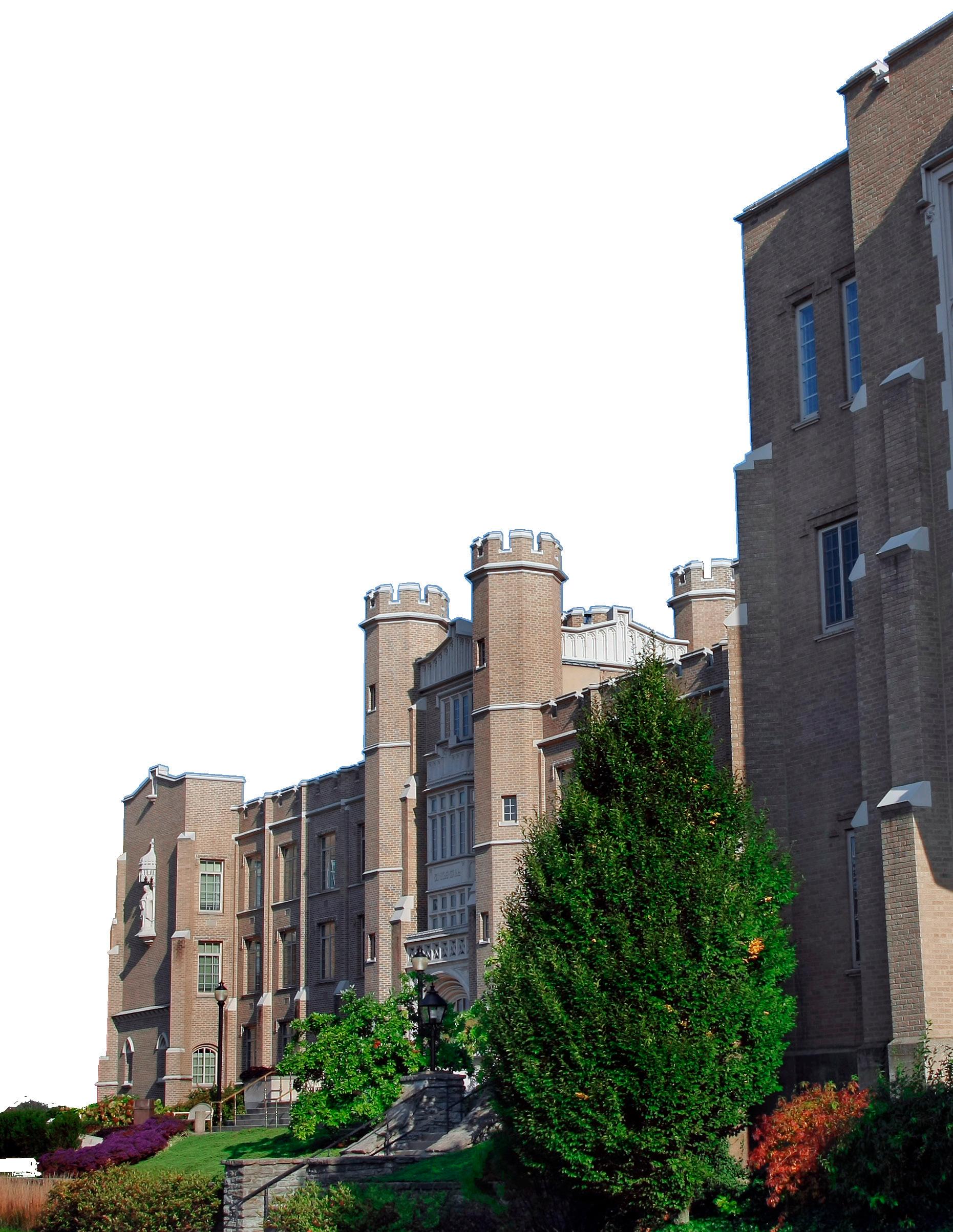
of electrical, mechanical, and plumbing functions, landscaping, groundskeeping, and recycling and waste management.
The Center guides the development and integration of meaningful immersive and service-learning courses that bridge classrooms to communities while providing a mutually beneficial exchange of knowledge and resources, including those related to integral ecology.
The Brueggeman Center works collaboratively for a more just, peaceful, and sustainable world. The Center works in partnership with community organizations –regionally, nationally, and globally – to collaborate in the essential work of deepening interfaith understanding and promoting systemic change on issues of social and environmental justice.
Since 2010, Xavier has made a concerted effort to build each of its new buildings to LEED (Leadership in Energy and Environmental Design) Standards. The U.S. Green Building Council specifies that buildings built to LEED specifications achieve the following goals:
+ Reducing contribution to global climate change
+ Enhancing individual human health
+ Protecting and restoring water resources
+ Protect and enhance biodiversity and ecosystem services
+ Promoting sustainable regenerative material cycles
+ Enhancing community quality of life
Several Xavier buildings meet LEED standards:
+ Alter Hall
+ Health United Building
+ Conaton Learning Commons
+ Smith Hall
+ Justice Hall
+ Central Utility Plant
+ College of Osteopathic Medicine (planned)
Geothermal Energy:
Our Lady of Peace Chapel
The Our Lady of Peace Chapel is Xavier’s first building to use efficient and renewable geothermal energy. The chapel’s heating and cooling system uses naturally stable ground temperature to keep it warm in the winter and cool in the summer.
A main reason Xavier’s central utility plant provides significant energy conservation and financial savings is due to the selection of very efficient equipment. The construction of a central utility plant also provided the opportunity to efficiently connect utility services within the academic mall and retire old, inefficient equipment.
In addition to greater efficiency, central utility plants like Xavier’s have a number of advantages over decentralized systems including easier and better maintenance, built-in equipment redundancy, and reduced operating costs.
Located next to Cohen in the Cintas parking lot, Xavier has two electric vehicle charging stations. These stations are free to use, 240 volt level 2 charging ports.
Low VOC materials, CO2 monitors, and occupancy sensors are just a few of the ways Xavier is keeping the air clean and comfortable indoors and outdoors.
Xavier has installed white roofs on many of its buildings which prevent 80% of sunlight from heating the city air and atmosphere, directly reducing the earth’s temperature and reducing energy consumption from heating and cooling our buildings.
Energy Wheels
Energy wheels reduce energy consumption and maintain comfortable indoor environments through an exchange of heat and moisture that pre-conditions incoming air.
Lighting
The vast majority of Xavier’s buildings utilize high efficiency lighting including LED, CFL, and T5 light fixtures.
Use of carpets, paint, and other materials with low volatile organic compounds benefits the natural environment and improves indoor conditions.
Green Roof on Justice Hall
This unique feature of Xavier’s largest residence hall includes numerous trees, plants, and a large lawn which provides significant sustainability impacts including:
+ Reducing storm water runoff and delaying runoff from entering the public sewer, lessening the load on the sewer system
+ Lessening the heat island effect
+ Reducing energy consumption by shading and cooling the roof
+ Providing thermal mass and insulation
+ Increasing habitat for animals and plants which helps biodiversity
+ Creating a more pleasing aesthetic
Since 2008, Xavier’s Physical Plant has begun



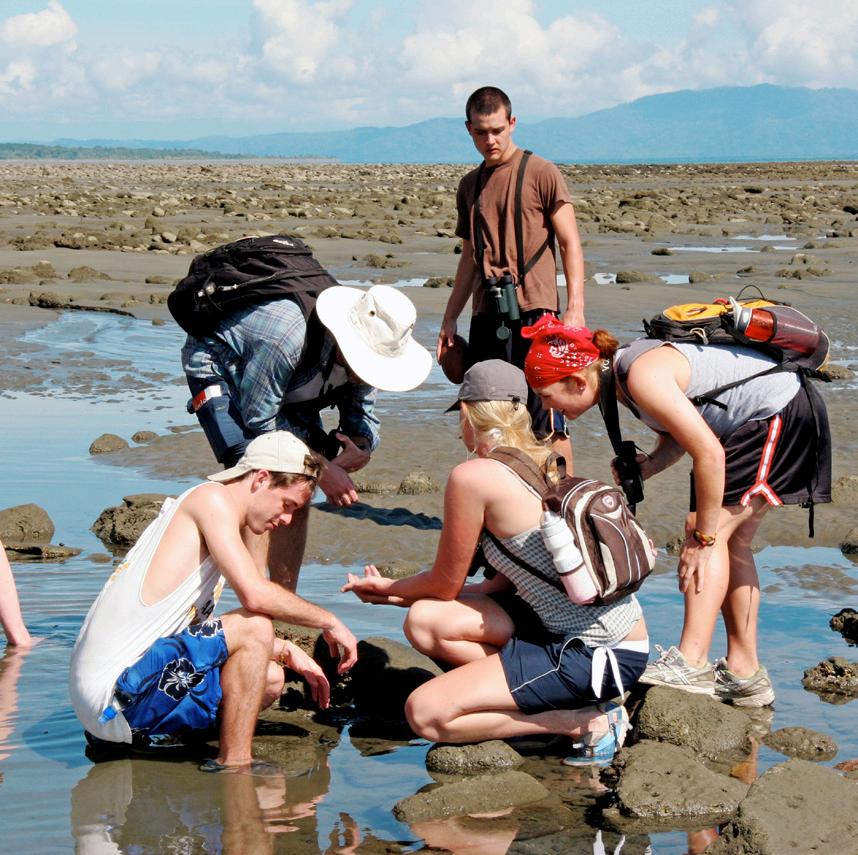
Sustainability Attribute
Per a recommendation from the Ecology Education subcommittee, the development of an attribute for environmental sustainability courses has been approved. This attribute will make it easier for Xavier students to identify courses where sustainability is a topic. Syllabuses are being gathered to create a course catalogue.
Economics, Sustainability, and Society Major Students can obtain a Bachelor of Arts in Economics, Sustainability, and Society. This program focuses on sustainable economies, and includes the study of natural resources, ecological and environmental problems, processes, and policies at local, national, and global levels. Students will integrate economic analysis with cultural studies, global economic development, policy studies, and management, as they gain skills to conceptualize and solve sustainability problems.
Environmental Science Major
Students can obtain a Bachelor of Science in Environmental Science in two ways. The first is a traditional undergraduate four-year degree; the second is through Xavier’s Environmental Science program with a concentration in Environmental Management Program, where students attend Xavier and Duke University to obtain both their Bachelor of Science and graduate degree in a 5-year period. These programs focus on the impact of human systems on our natural environment and how in turn these natural systems affect the human environment, with strong foundations in the sciences, but also with an understanding of economics, political and social systems.
In Spring 2024, the Laudato Si’ Action Platform sponsored a book discussion, facilitated by Kathleen Smythe, Ph.D., on Braiding Sweetgrass by Robin Kimmerer, a Potawatomi woman and biologist who explores indigenous wisdom on plants and ecology
and how ways of knowing can inform, enhance, and deepen more professionalized ways of knowing in higher education.
Costa Rica
Through this program, students visit five sustainable schools, while learning about culturally responsive teaching. During these school visits, students participate in lessons that integrate the schools’ vision of sustainability which includes school gardens, recycling, and composting.
Ireland
This opportunity is supported by an Increase and Diversify Education Abroad for U.S. Students (IDEAS) grant, and is aimed to support students with disabilities, giving them the opportunity to study abroad. Xavier students spend time at Mary Immaculate College learning about sustainability efforts on their campus and their various educational systems. The group plans to identify one or two ideas that we might implement on Xavier’s campus in support of our sustainability goals.
Wales
This science program allows science and non-science majors to study biology and physics courses in an experiential environment while in Wales and England. Students start on the beaches of Llandudno and spend time exploring the 13th Century Conwy castle. The cohort hikes in the rainforests of Cwm Eionion and follows in the footsteps of Charles Darwin in Eryri/ Snowdonia National Park.
Founded by theology professor Leon Chartrand, Ph.D., Xavier expeditions offer immersion programs to all seven continents for credit. Students learn and experience “our most basic role within the life-earthuniverse story” to “facilitate self-discovery of earth as our primary reality, healer, and teacher.”
Publications
“Articulating Globalization: Exploring the Bottom of the Pyramid Terrain” in Organization Studies, Volume 37, Issue 5, May 1, 2016
Suparna Chatterjee, Ph.D. | History
“Beyond Slacktivism: A Culture of Encounter and Ecological Conversion through a Screen?” in Journal of Catholic Social Thought, Volume 13 Issue 2, Summer 2016
Marcus Mescher, Ph.D. | Theology
“Efficacy of Trapping Protocols for Agrilus Jewel Beetles: A Multi-country Assessment” In Journal of Pest Science Volume 97 Issue 1, January 6, 2024
Ann M. Ray, Ph.D. | Biology
Sarah M. Devine, MS | Biology
Emily K. L. Franzen | Biology with G. Santoiemma, Ph.D., et al.
“Green Analytical Chemistry: Teaching Towards Sustainable and Responsible Choices” in Teaching to the Mission, 9th ed., Xavier University, 2021
Supaporn Kradtap Hartwell, Ph.D. | Chemistry
Book Review of “Spectrality and Survivance: Living the Anthropocene” in European Journal of Literature, Culture & Environment, Volume 14 No. 2, October 2023
Lisa Ottum, Ph.D. | English
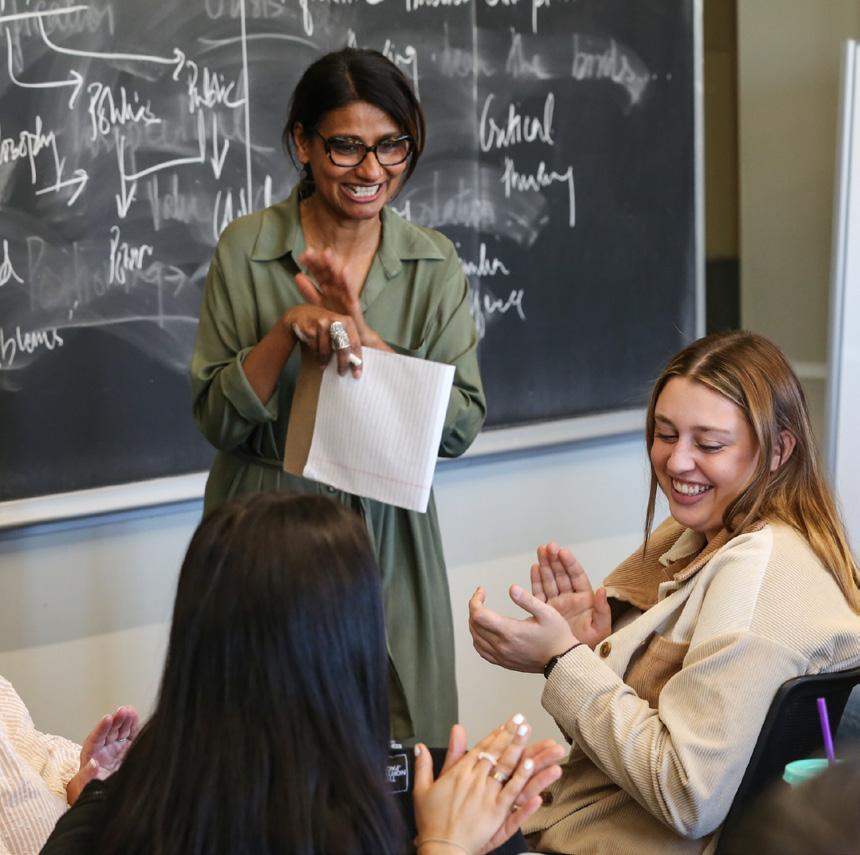
“The Implications of Solidarity for Food Ethics” in The Journal of Social Encounters Volume 7 Issue 2, August 2023
John Sniegocki, Ph.D. | Theology
On the Ground: Terrestrial Theopoetics and Planetary Politics, Fordham University Press, 2023
O’neil Van Horn, Ph.D. | Theology
“Postcolonially Bittersweet in America: Ecojustice and Sacramental Agency” in Journal of Postcolonial Theory and Theology, Volume 4 Issue 2, April 2013
Kristine Suna-Koro, Ph.D. | Theology
“Second-Best Prioritization of Environmental Cleanups” Environmental and Resource Economics, Volume 72 Issue 4, April 2019
Justin Roush, Ph.D. | Ecomonics, with J. LaRiviere, Ph.D. and M. McMahon, Ph.D.
“Selective Predation by Pond-Breeding Salamanders in Ephemeral Wetlands of Ohio and Illinois” in Journal of Herpetology, Volume 55 No. 3, September 2021
Mollie McIntosh, Ph.D. | Biology, with B. Stuecker, Ph.D., et al.
Whole Earth Living: Reconnecting Earth, History, Body and Mind, Dixi Books, 2020
Kathleen Smythe, Ph.D. | History


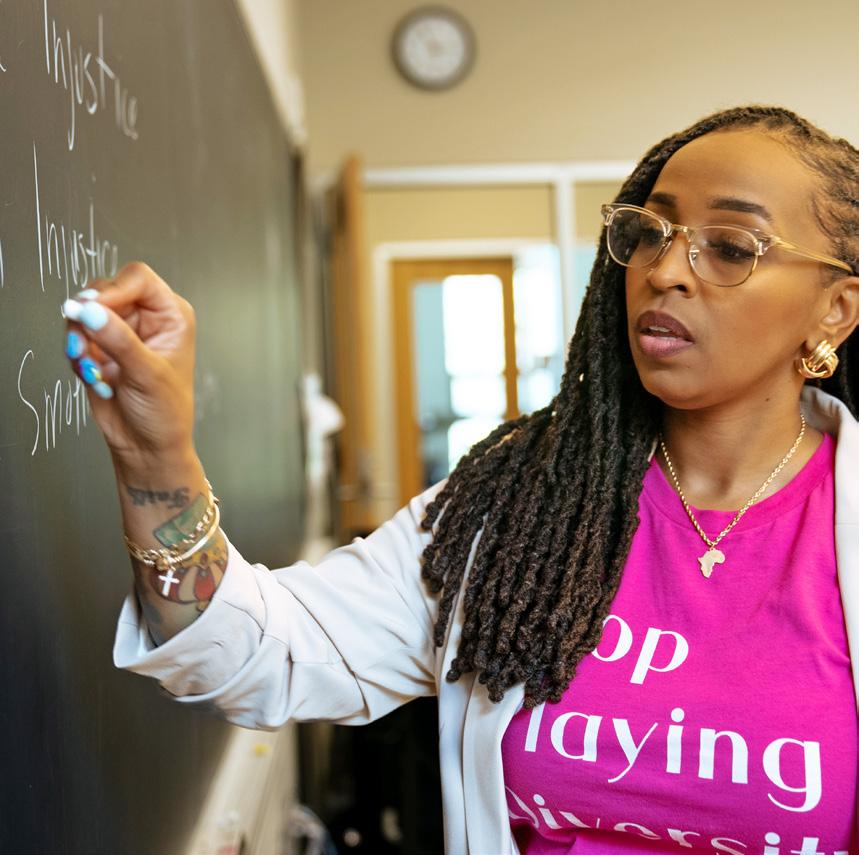


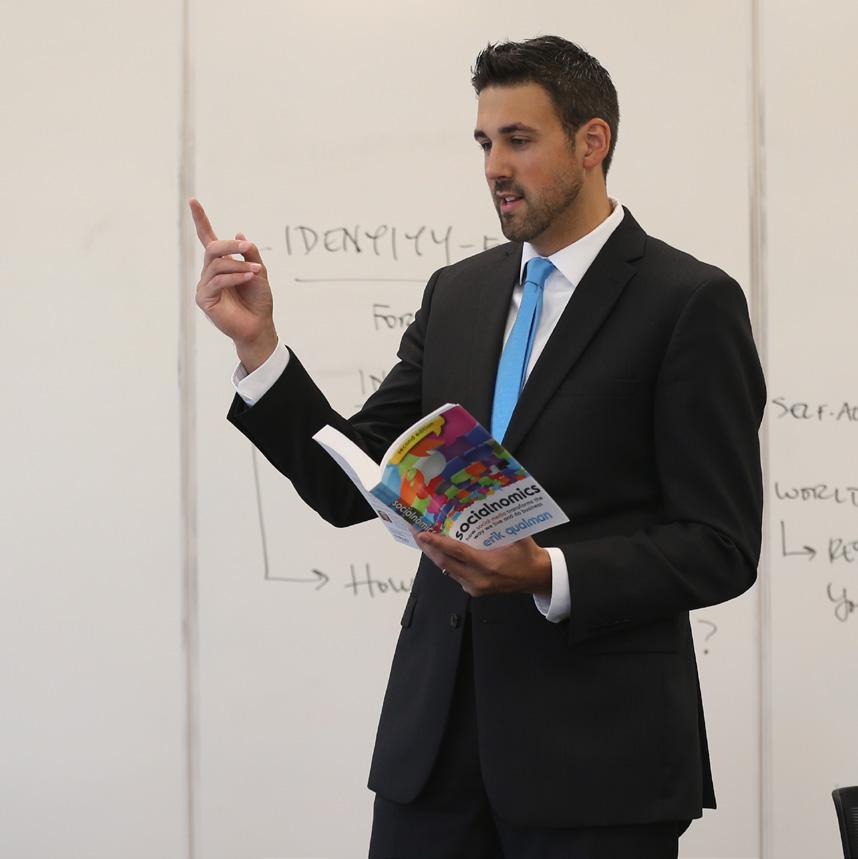
“Cura Terrae: A 5th Care for Excellence in Jesuit Education” at AJCU’s Faith, Justice and Reconciliation Assembly, Loyola University Chicago, July 2024
Debra Mooney, Ph.D. | Division of Mission and Ministry
The Last Prairie: A Documentary about the Nebraska Sandhills on Nebraska PBS, April 7, 2023
John O’Keefe, Ph.D. | Brueggeman Center for Dialogue
“Relationship Models Addressing Food Insecurity at NEXUS Community Garden and Urban Farm” at Loyola University Chicago’s Climate Change Conference, Chicago, Illinois, March 15, 2024
Tim Sundrup, M.Div | Center for Mission and Identity
Tim Severyn, MBA, MTS with D. Peebles
“Towards Muslim Engagement with Pope Francis’ Encyclical Laudato Sí’” in Arc of the Universe, June 21, 2015
Anas Malik, Ph.D. | Political Science
“Using Red Bike’s Data Dashboard to Compare Red Bike Monthly and Go Pass Members” at Midwest Sustainability Summit, Cincinnati, Ohio, May 2, 2024
Jeremy Steeves, Ph.D. | Exercise Science with D. McClintock
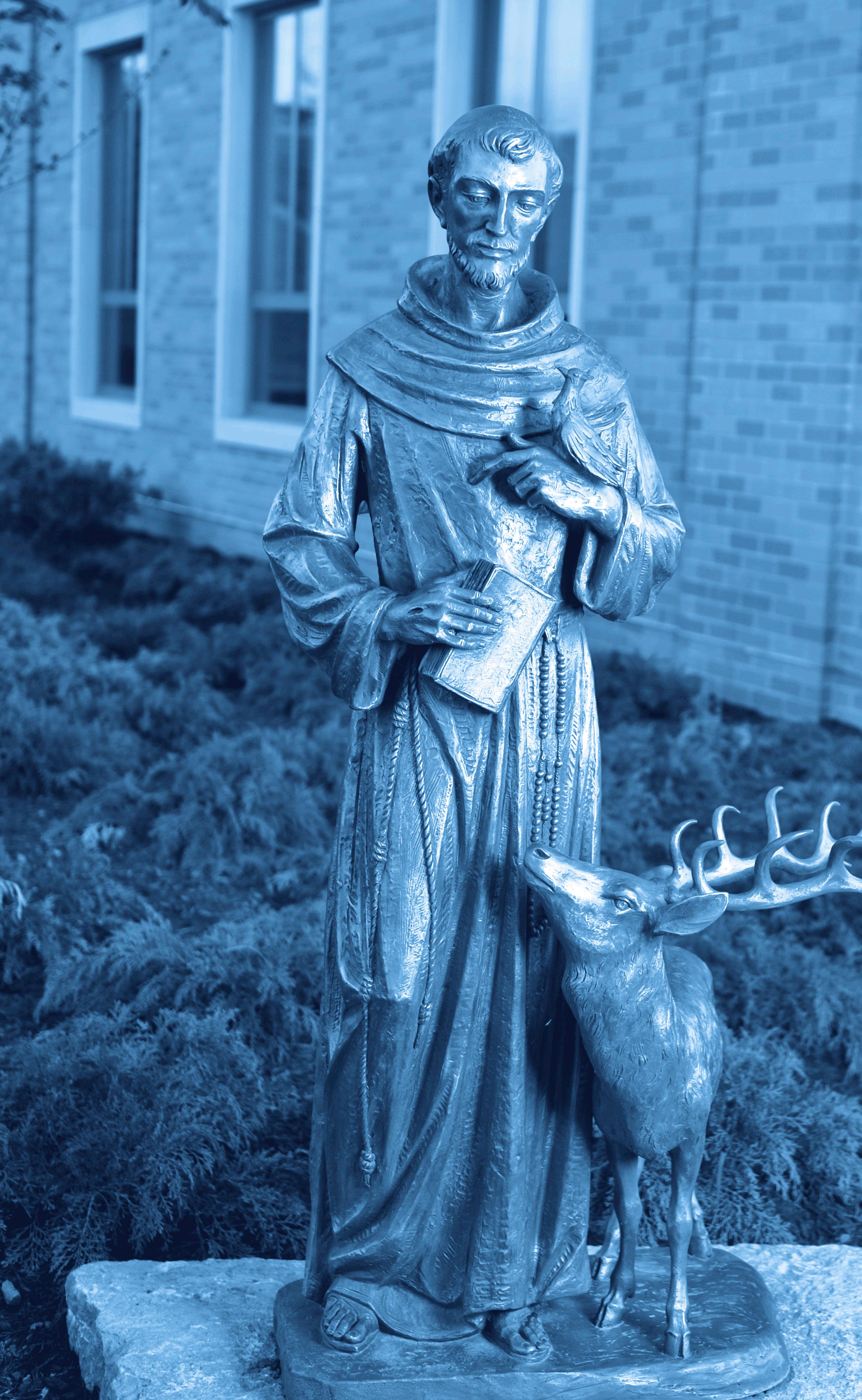
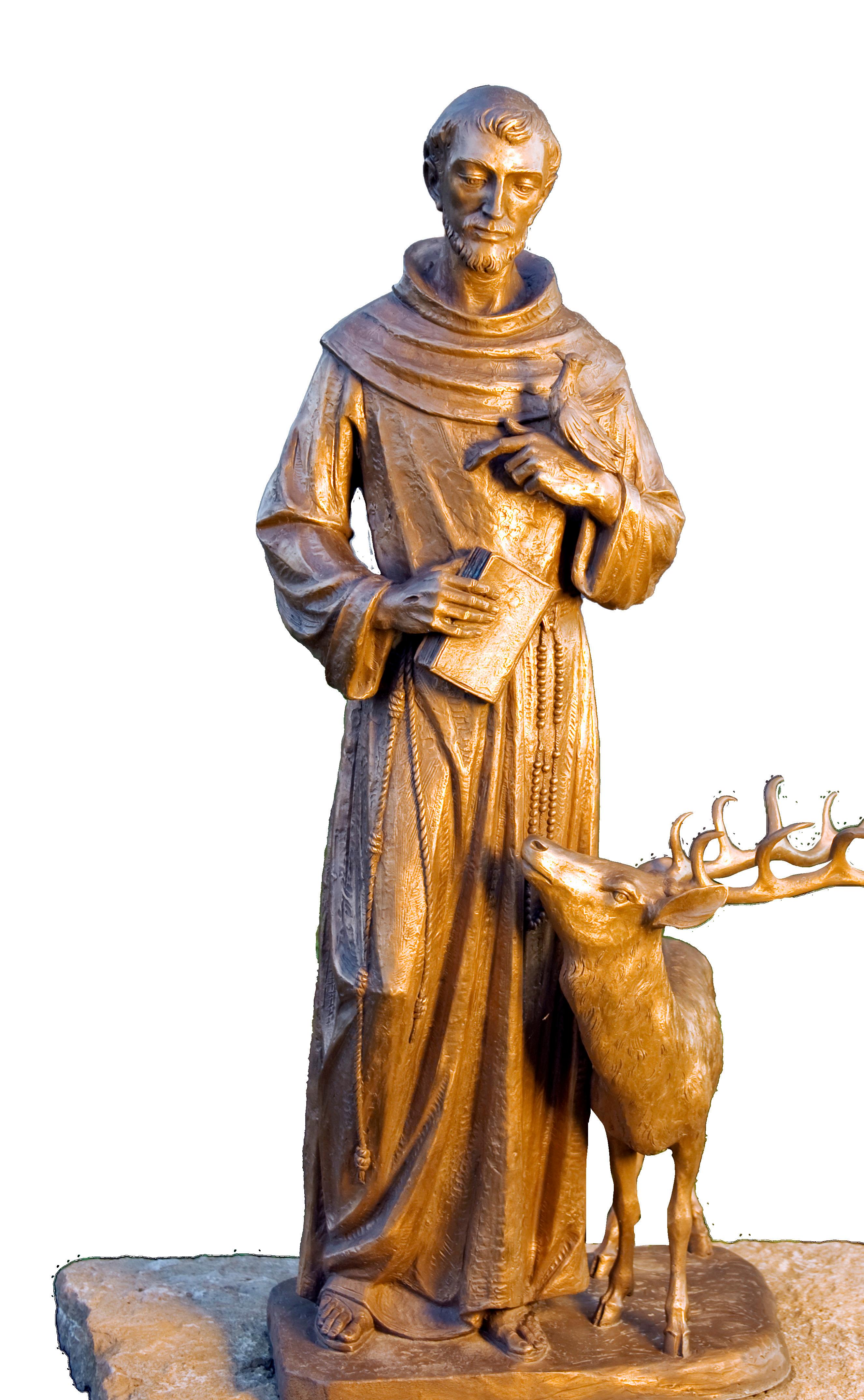
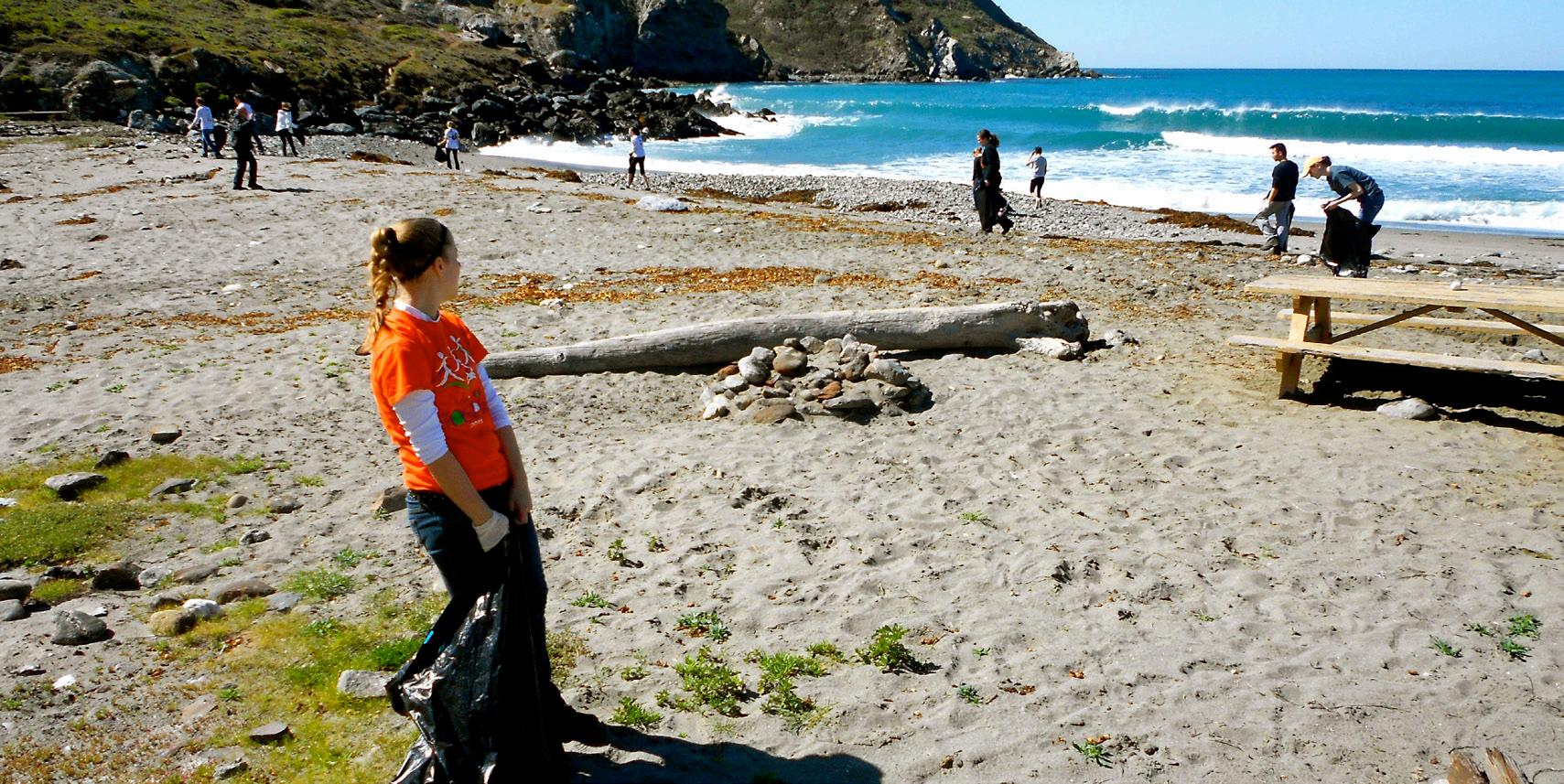
Xavier’s Alternative Breaks program, a program of the Dorothy Day Center for Faith and Justice (CFJ), offers students spring break options designed to create a world of active citizens immersed in education, service, and reflection with a focus on social justice issues facing the world today. Sustainability-focused experiences include:
+ The Rights and Welfare of Animals
+ Simple Living and Appalachian Culture
+ Conservation of Our Native Ecosystems
Animals, People, and the Earth at Xavier Club
This student organization raises awareness about animal rights and the ways in which human activity impacts the environment. The club advisor is professor of theology, John Sniegocki, Ph.D.
Xavier’s largest service experience, run through the CFJ, invites students, faculty, staff, and alumni to step off campus to learn from, grow with, and serve the communities that exist beyond our university. With a focus on meaningful service accompanied by reflection, this program seeks to spark compassion for and connection with our neighbors. Sustainability focused sites include:
+ Evanston Community Council
+ Gorman Heritage Farm
+ Mill Creek Alliance
+ NEXUS Community Garden and Urban Farm
+ Wasson Way
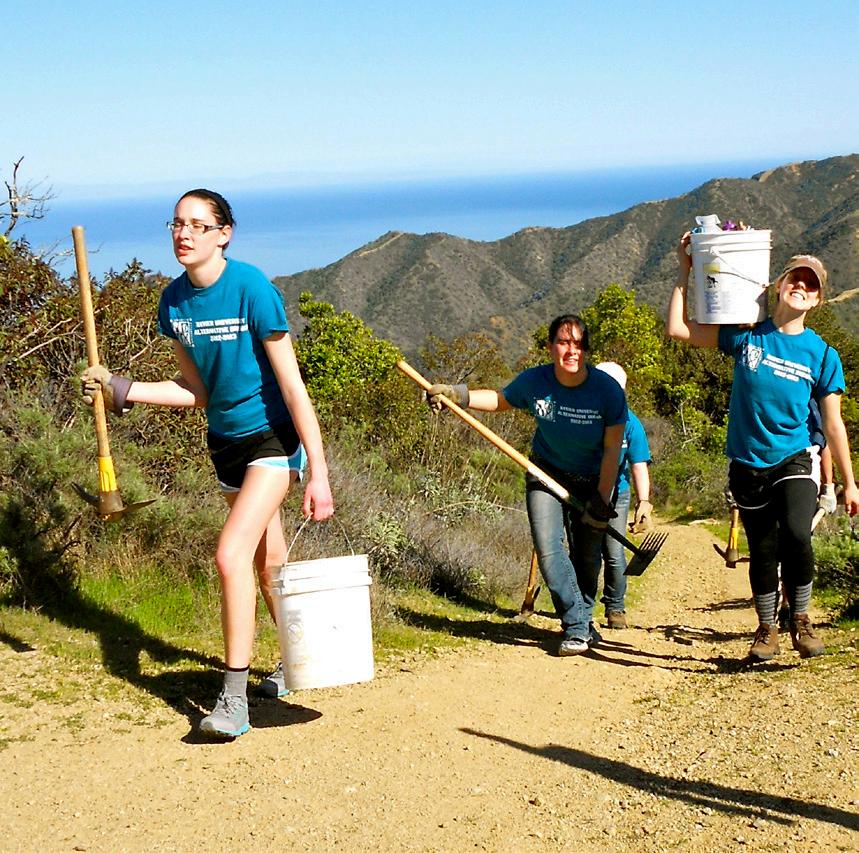
House plants have been shown to reduce stress and boost moods and Xavier offers a number of opportunities to learn about planting and bring them into residence rooms and homes especially during Welcome Week and during exam periods at the ABSN site in Cleveland.
Throughout the Summer, Xavier provides opportunities for students to serve full-time at local communitybased, non-profit organizations and live in community on campus through this program with this program run by the CFJ. Several of our partner organizations include a focus on sustainability and ecological justice including the Civic Garden Center of Greater Cincinnati and the IMAGO Earth Center.
Students gather weekly for fun and camaraderie around vegetarian meals prepared by CFJ staff. It is estimated that a vegetarian diet can reduce an individual’s carbon footprint by up to 75%.
Xavier Student Sustainability (XSS) promotes sustainability while fostering an environment where students can explore, learn, and engage in discussion. Ecofest, the club’s annual headlining event, is hosted every spring near Earth Day to celebrate environmentalism and support sustainability efforts; it features on and off campus organizations, bands, and a clothing swap. The club produces educational materials including a pamphlet on climate anxiety. The club advisor is economics professor, Rachel Behr LaRose, Ph.D.
The NEXUS (Norwood, Evanston, Xavier University, Sustainability) garden on Xavier University’s campus is a collaborative learning and growing space managed by Bellarmine Chapel in partnership with Brick Gardens, a black-owned business that creates microeconomic assets for communities in food deserts and addresses racial inequity in the food system by providing access to food, jobs for youth, and education on healthy nutrition.
Designed to bring together diverse stakeholders from its neighboring communities, the NEXUS garden strives to grow transformative relationships, address food insecurity, educate on the importance of urban agriculture, and promote sustainability. NEXUS does this through a culture of encounter and mutual belonging, centered on organic gardening, healthy food, environmental justice, and the sacred connection of an individual and our common home. Approximately 650 pounds of fresh produce are grown and donated to local food pantries from the garden each year.
The NEXUS Community Garden and Urban Farm’s commitment to sustainable organic farming and gardening includes a commitment to reduce garden waste through composting. The most recent addition to this program is the introduction of a Johnson-Su Bioreactor composting system. This passive, no-turn system uses increased airflow to achieve material breakdown through high levels of beneficial fungi and microbes.
During the 2023 Spring Semester, Xavier Dining in partnership with Auxiliary Services and Care Management, launched a pilot program to distribute surplus prepared food items after all Men’s basketball home games. Highly perishable and ready to eat food that cannot be safely stored and reused is collected prior to the end of the game and made available for 90 minutes after the conclusion of the game for students experiencing food insecurity. This program was refined and relaunched on a permanent basis at the beginning of the 2023-24 season.


The Hoff Dining Hall is adorned with symbols and communications associated with the Gifts of the Ignatian Heritage, the Seal of the Society of Jesus, and waste reduction and climate change mitigation messaging.
Xavier Dining works to serve ingredients from small to mid-sized local farms when seasonably available. Education is at the center of Xavier Dining’s programming which includes a food waste collection and reduction event. Other programs focus on minimizing the environmental impact of food, sustainable purchasing initiatives, supporting charitable initiatives, nutrition and wellness, recycling and waste reduction, and energy and water conservation. They have also incorporated reusable takeout boxes to replace the use of disposable Styrofoam containers.
The Hoff Dining Hall has a five-level vertical hydroponic grow system producing bok choy, basil, mint, kale, lettuce, micro greens, and edible flowers that are used in student meals and campus catering
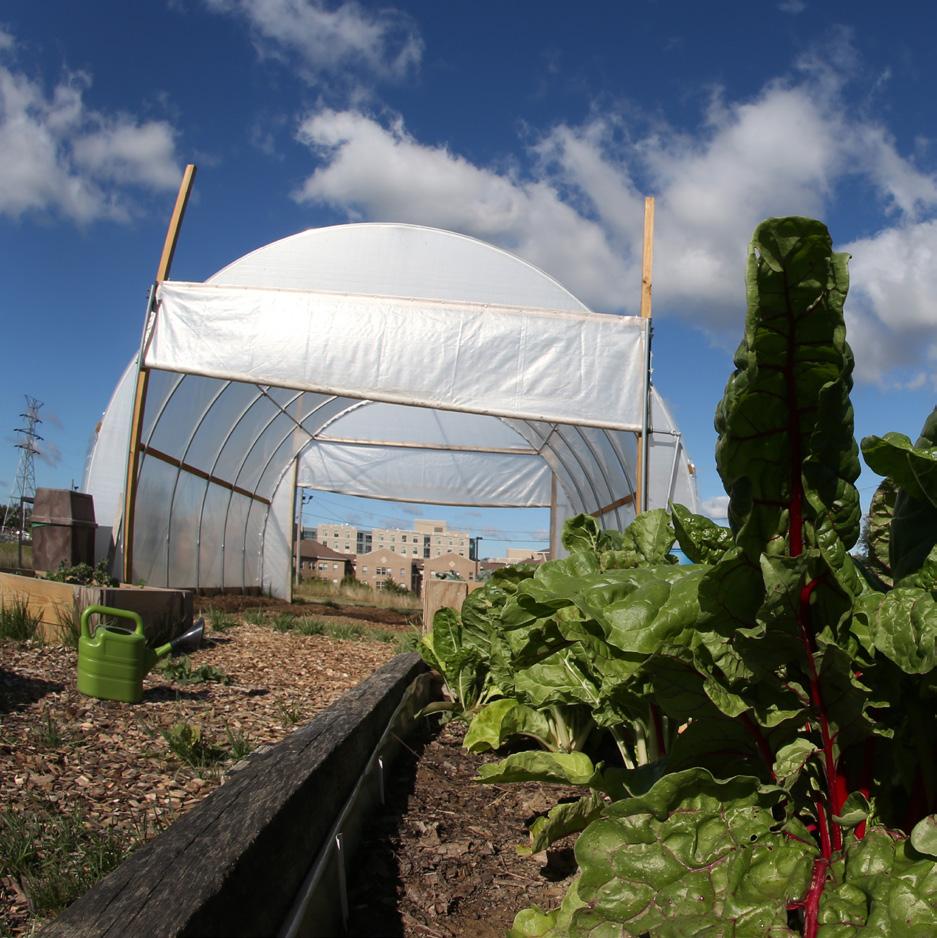
In response to the cry of the poor and our Jesuit values, Auxiliary Services has created an online system where meals can be donated in the form of swipe card entry into the Hoff Dining Commons and then anonymously requested by students facing food insecurity.
Xavier’s student-run food pantry, called The Store, promotes food security and nutrition by providing free fresh, frozen, and non-perishable foods, as well as hygiene and household products. The Store was created in 2017 following a survey conducted by students enrolled in a sociology course which found that 23% of students without a meal plan were food insecure, including nearly 11% who were experiencing hunger. The Store is available to all students whether they live on campus or off campus. Xavier students can access it by swiping in with their Xavier One Pass.
A committee from Xavier’s Laudato Si’ Action Platform: Response to the Cry of the Poor is working with Care Management and The Store to explore ways to further address food insecurity.
The campus prioritizes the planting of species that grow naturally in the region to benefit the local environment and wildlife, including Prairie Dropseed, Purple Coneflower, Butterfly Weed, Black-eyed Susan, Beebalm, Smooth Blue Aster, Sky Blue Aster, Yellow Coneflower, Slender Blazing Star, Little Bluestem, and Old Field Goldenrod. A native grassland berm has been planted along the walking path east of the Cintas Center.
The campus community is invited to take a beautiful walking tour of the campus with reflection prompts at mission-relevant sites along the way.
The garden on the south side of Alter Hall channels rainwater from the building’s roof through a series of terraces which model the hydrology and ecology of a natural watershed and nurtures a diversity of plants.
The Jesuit Family of Works offers a series of presentations, immersions, and prayer experiences titled Embracing God’s Creation focused on the ecological spirituality of Laudato Si’ including an annual Ecological Taizé prayer service renewing our spiritual commitment to Laudato Si’
Michael J. Graham, S.J. Legacy Labyrinth
Honoring Xavier’s 34th president, Xavier’s outdoor labyrinth provides a spiritual tool for finding God in daily life, the hallmark of Ignatian Spirituality. The inscription on the plaque at the entrance of the labyrinth reads:
As the longest serving president in Xavier history, Fr. Graham’s vision expressed that, “Xavier men and women become people of learning and reflection, integrity and achievement, in solidarity for and with others.” This Labyrinth offers an invitation to all members of the community to reflect and discern their own path, always asking “Where is the more universal good?”
A program through the Center for Faith and Justice, centered around a shared meal paired with speakers, presentations, and resource sharing where participants learn to dialogue across differences in worldview. Program topics have included intersectionality and climate.
Go Veg/Lent program
Each year, theology professor John Sniegocki, Ph.D., coordinates a campaign where Xavier community members challenge themselves to adopt a plantbased diet during the Lenten season. Throughout the program participants are sent encouragement, recipes, and information on how their dietary choices affect ecology, world hunger, animal wellbeing, and a spirituality of compassion.

St. Ignatius Loyola’s Examen is a peaceful, reflective prayer bringing forth awareness to the movement of God in our day. With the modern call to read the signs-of-the-times, thematic Examens have been created; this Examen guides reflection on your connection with the environment and the living world. Begin with a pause and a slow deep breath or two. Become aware that you are in the presence of the Holy.
As I review my day, what aspects of the living world and my surroundings am I especially grateful for?
Opening Petition
As I review my bond with Our Common Home, I ask for the light to better know my place within God’s creation.
As I review my connections with nature - including people, plants, animals, air, food, waste, water, sun and stars- what stirs in me?
The sounds, sights, and tastes I have encountered …
The peace I received …
The learning I obtained …
The beauty of …
The actions I have initiated …
A challenge overcome …
The care I have shown …
The joy that I have experienced …
In light of my review, have I noticed God’s presence in any of this?
Closing Petition adapted from a prayer in Laudato Si’
All-powerful God, you are present in the whole universe and in the smallest of your creatures. You embrace with your tenderness all that exists. Pour out upon me the power of your love, that I may protect life and beauty.
Amen
by Debra Mooney, Ph.D., Certified Laudato Si’ Animator
Xavier’s Office Swap program reduces office waste through reuse and redistributing of office supplies. Faculty and staff can donate excess office supplies into a university-wide pool from which they can also acquire supplies at no cost. This initiative gives useful supplies a second life and reduces the amount of waste sent to landfills.
XU Office Swap has already resulted in over 3700 items being salvaged and 2100 items being repurposed; it saves the university approximately $3,100 each semester. Faculty and staff can access the online catalog of supplies through the Xavier Buy system.
Xavier has partnered with the St. Vincent de Paul Society to provide a twenty-four foot long trailer to collect donations of gently used furniture, clothes, and supplies during student move out. Opportunities are being explored with partners both on campus and off to assist students to store, reuse, and recycle more items during their move in and move out from campus and thus reduce the amount of waste sent to landfill.
“Waste Less Wednesdays” is an educational campaign designed by the Laudato Si’ Sustainable Lifestyles committee. It is focused on increasing recycling across campus. Based on best practices for marketing personal change, the campaign includes gamification, personal pledges, and informational posts.
Xavier has a single stream recycling program so that all recyclable materials can go into any of our 2,000 recycling bins. Rumpke, Xavier’s recycling services company, then separates plastics, paper, and metals through their system.

Xavier University partnered with Bellarmine Parish, Great Parks of Hamilton County, and Cohen Recycling to collect and recycle approximately 350 pounds of Christmas lights after the holiday season.
In the Fall of 2023, Xavier completed an audit of its recycling programs to address opportunities and efficiencies in our waste management system. This audit was performed thanks to College of Arts and Sciences professor Bob Gedert, MPA, and Xavier students Savannah Mays (Class of 2024), and Luke Frigo (Class of 2024).
85-87% of all materials placed in recycling bins at Xavier can be recycled. This percentage is consistent with most residential areas in Cincinnati. Better separation of recyclables from non-recyclable trash and cleaning contaminated recyclables is the ‘nextstep’ for campus to increase its recycling rate.
An initiative from the Laudato Si’ Ecological Economics committee centers around reducing paper consumption. Specifically focusing on the amount of printing across the campus, this initiative is working with faculty and staff to identify areas of unnecessary paper use and offer digital and alternative methods of operation.
The Montessori school, serving approximately 150 students in pre-kindergarten through eighth grade, is exemplary in incorporating sustainable living and ecological education into a curriculum. Along with its environmental lessons, the lab school has a specialized recycling program that collects hard to recycle items that the University’s regular recycling system cannot. This program is supported by the Head of School Ericka Eicholz, teachers Victoria Pinciotti and Donna Hutchinson-Smyth, and a team of volunteer parents.
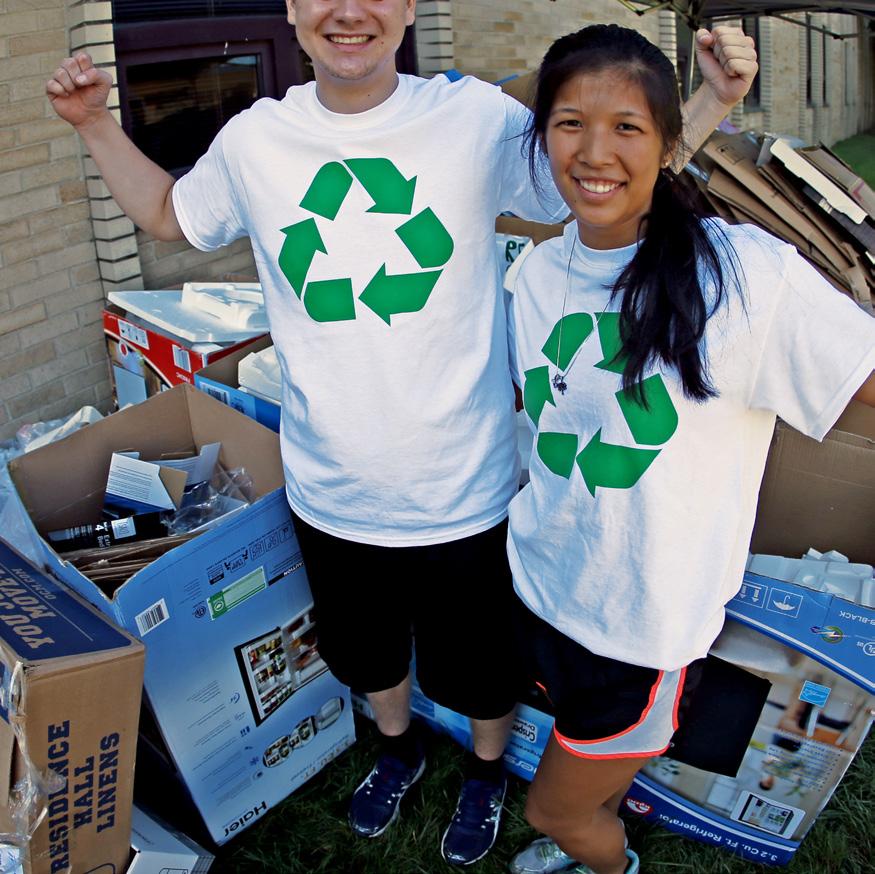

E-waste Recycling
Xavier has a path to recycle technology assets. Information Technologies will receive or pick up old or unused University technology equipment to be reused or recycled. The University has also partnered
with Cohen Recycling to collect personal electronic waste to be recycled at the end of the academic year, resulting in 521 pounds of recycled material. E-waste is approximately 2% of landfill material and 70% of toxic contamination.
The Archdiocese of Cincinnati
Xavier representatives, including Xavier’s University Sustainability Officer, serve on a number of the Archdiocese of Cincinnati’s sustainability focused committees including:
+ Laudato Si’ Action Platform Implementation Committee
+ Care for Creation Task Force
+ Cincinnati Catholic Higher Education Cohort
This work resulted in the cosponsoring and planning of the Archdiocese’s first Care for God’s Creation: The Laudato Si’ Action Platform Conference, where Xavier faculty, staff, and students spoke on panels, led breakout session, and assisted with a prayer service.
Greater Cincinnati Green Business Council
Since 2013, Xavier has been a member of the Greater Cincinnati Green Business Council which serves as an educational forum for the exchange of information, expertise, and environmental best practices for collective green action in the region. Member organizations include altafiber, the Cincinnati Zoo, Cintas, Cohen Recycling, CVG Airport, Duke Energy, 84.51, emersion DESIGN, Fifth Third Bank, Bricker Graydon, Kroger, Macy’s, Madtree, Melink, P&G, Scripps, Standard Textile, and Triversity Construction.
Tim Sundrup, M.Div., Associate Director of Mission and Identity/University Sustainability Coordinator, and Justin Roush, Ph.D., Assistant Professor of Economics served as representatives when Xavier University was elected to serve as the Council’s Vice Presidents of Membership from 2024 through 2025.
Xavier hosted the April 2024 Greater Cincinnati Green Business Council meeting on campus. During the
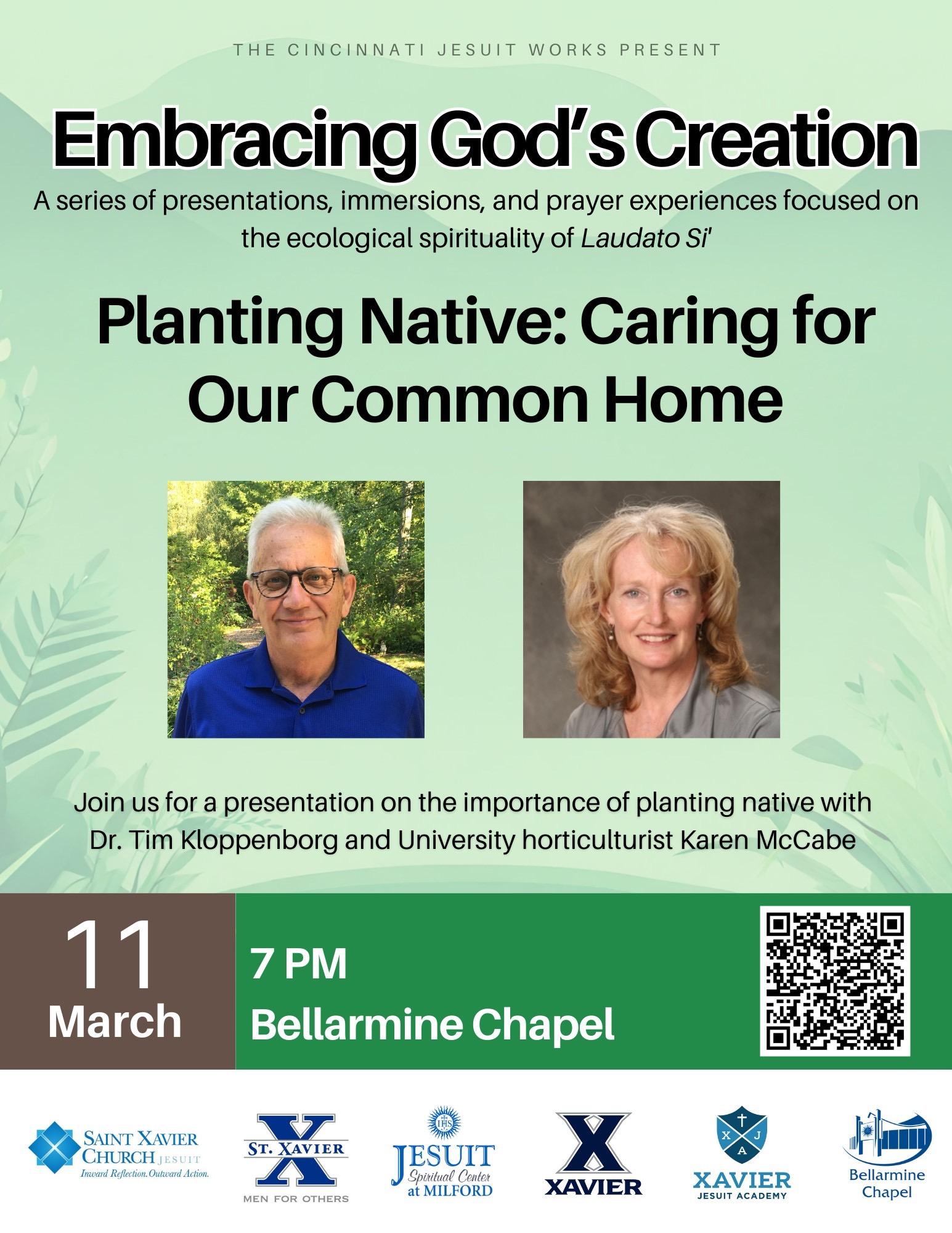
meeting students from Xavier along with other local college students engaged in lively discussion and networked with local business leaders. Discussions centered around the skills businesses are looking for in future green sector employees and the education
Xavier faculty and staff helped various steering committees develop portions of the Green Cincinnati Plan. Xavier continues to support this plan in multiple areas of overlap with Xavier’s Laudato Si’ Action Plan. Xavier is also a member of the City of Cincinnati’s Higher Education cohort focused on food waste.
This tri-state regional network is committed to taking action on climate change. As an organizational member since its founding, Xavier is an active supporter of activities such as the annual Midwest Sustainability Summit on which John O’Keefe, Ph.D., Director of the Brueggeman Center, serves as a
This collaboration between Green Umbrella and Equasion, an organization promoting interfaith dialogue in Greater Cincinnati, partners with religious communities to reduce the risk and impacts of climate change. Xavier is a supporter through collaborations with the Archdiocese of Cincinnati. Anas Malik, Ph.D. professor of political science,
International Association of Jesuit Universities + EcoJesuit + Ignatian Solidarity Network Association of Jesuit Colleges and Universities + Cincinnati Jesuit Family of Works
Since 2014, a partnership between the Formica Corporation and the Xavier University men’s basketball team has resulted in over 20,000 trees being planted. As part of the program’s tenth year, this partnership has teamed up with Learfield Sports’ Xavier Sports Properties and Cincinnati Parks to plant the trees locally – with ten trees being planted for every three-point basket made, resulting in 2320 trees being planted for the 2023-24 men’s basketball season.
CEPA is a project of the Ignatian Solidarity Network, EthixMerch, Equal Exchange, and COLLECTION that provides support to institutions seeking to integrate the principles of Catholic Social Teaching into their purchasing through educational resources, immersive formational opportunities, networking, and mentorship. Xavier carries some CEPA items in The All For One Shop.
Hosted by Xavier’s Center for Innovation, students at this weekend-long event learn about a topic from a team of community experts, divide into teams and engage in workshops to brainstorm possible solutions, and then create and make presentations on those solutions. The 2024 topic was waste reduction on Xavier’s campus.
This two-week long summer camp hosted by the Education Department brought two hundred local students in grades one through eight together on campus to learn about ecology. Students read books, designed and carried out projects, and had a lot of fun exploring topics related to plants, bees, composting, alternate/renewable energy, and deforestation.
+ Bruce Berno, MBA (MBA ‘85)
Board Member, Green Umbrella
+ James Evans, MBA (‘09)
Director of ESG Reporting & Analytics, Cardinal Health
+ Dan Misleh, MTS (‘82)
Founder, Catholic Climate Covenant
+ Meeka Owens, M.Ed. (M.Ed. ‘09)
Councilmember and Chairperson, City of Cincinnati, Climate, Environment, and Infrastructure Committee
+ Molly Robertshaw, MSW (‘03)
Equity and Community Engagement, City of Cincinnati Office of Environmental Sustainability
+ Jess Stavole, MPA & MSES (‘12)
Manager of Sustainability and Voluntary Carbon Markets, TÜV SÜD
+ Jessica Stoll, MPA (‘19)
Project Manager, Electrification Coalition

This logo was designed by Xavier graphic design students in 2014 under the guidance of Jonathan Gibson and the Department of Art to support the university’s sustainability efforts.
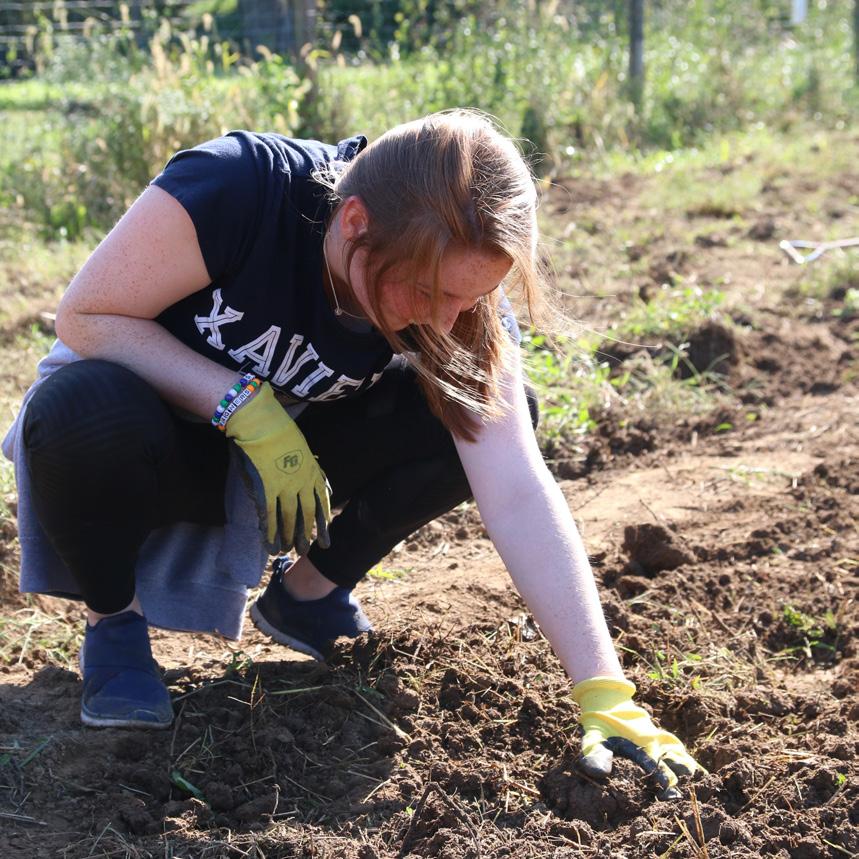
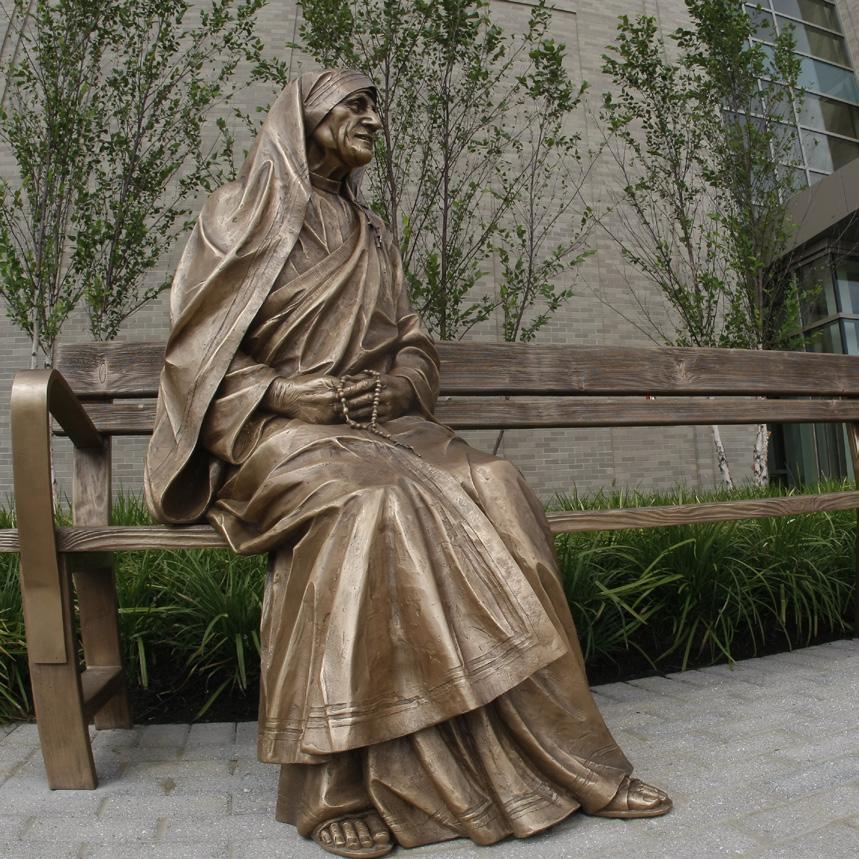
+ Join a Laudato Si’ Action Platform committee and support Xavier’s sustainability efforts.
+ Engage in continuous learning about integral ecology and environmental justice to live a life of ‘informed action,’ as our Xavier University Mission Statement invites us to do.
+ Donate to The Store or contribute extra meals from your food plan to Auxiliary Services’ Swipe Program to support the basic needs of students for optimal learning.
+ Use Xavier’s Office Swap Program when procuring office supplies and furniture.
+ Connect with nature by praying the Labyrinth, walking the Mission Mile, enjoying lunch on the green roof, or finding gratitude in the campus trees, native plants, Terrace Rain Garden, and NEXUS Community Garden and Urban Farm.
+ Tell students about Xavier’s sustainability learning opportunities, including majors, courses, clubs, study abroad options, summer internships, and Alternative Break experiences.
+ Author an Ignatian Examen for Sustainability and reflect on it daily for a semester.
+ Reduce resource consumption; start by decreasing what you print, how much water you use, or how much electricity you use.
For more tips and information, visit xavier.edu/green.
